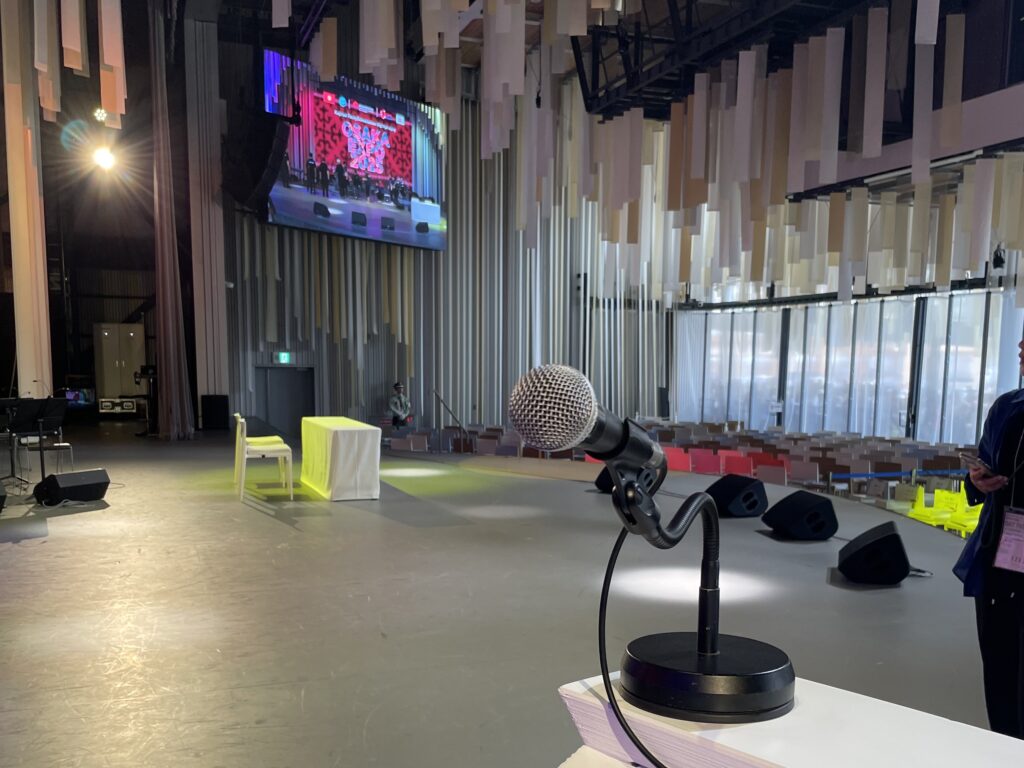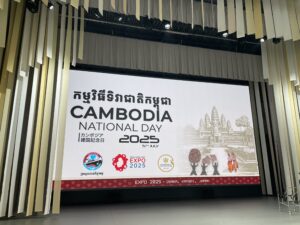[Expo MC Report] Kyrgyz Republic: A Day Full of the Unexpected
Hello, this is Rie Sasaki, a bilingual MC based in Japan.
In today’s blog post, I’d like to share an unusual experience from one of my recent assignments at Expo 2025 Osaka, where I was scheduled to co-host the National Day event for the Kyrgyz Republic.
Originally, the plan was for a dual-MC format—one host from Kyrgyzstan and one from Japan (myself). I received the script the day before, reviewed the content thoroughly, and practiced my delivery as usual in preparation for the big day.
On the day of the event, I arrived at the venue early and waited backstage, ready to begin rehearsal.
However, just moments before we were set to start, I was informed that the Kyrgyz side had decided to proceed with only one MC—their own.
The reason for the change was never clearly explained, but it may have been due to some internal miscommunication.
Situations like this are rare, even in large-scale events. A veteran MC I spoke with later told me, “This almost never happens.” I suppose I was lucky enough to draw one of those rare cards!
As if that wasn’t surprising enough, our rehearsal ended up starting over two hours late.
Why? Apparently, the performers from Kyrgyzstan overslept.
Due to budget constraints, the delegation had chosen to stay in a rental house rather than a hotel, and there were no wake-up calls or staff support. From what I heard, they may have had a party the night before—and unfortunately, no one managed to wake up on time…
Honestly, it was nerve-racking.
Things like this are almost unthinkable in Japan, where schedules are strict and time is managed down to the minute.
But in international settings, you quickly learn that what’s “normal” for us may not be “normal” elsewhere.
It really made me reflect: What is “normal,” anyway?
As someone who’s used to working in fast-paced environments with tight schedules, I’ll admit—my heart nearly jumped out of my chest.
But this, too, is part of the job.
Being a bilingual MC means standing at the intersection of different cultures and being ready to adapt—calmly and professionally—when things don’t go as planned.
Although I didn’t end up stepping on stage that day, the experience still gave me valuable insight into the realities of international events.
In many ways, learning to handle the unexpected is just as important as delivering a flawless performance.
Expo 2025 continues to be a place of learning, growth, and discovery for me—on and off the mic.
I look forward to sharing more from the field soon.


